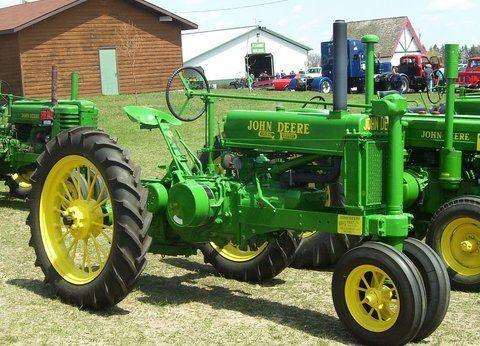Be sure to check into the availability of parts before purchasing an older model tractor
IN THE SHOP with Rachel
By Rachel Gingell
Farms.com
Before you buy a used older model/antique tractor, ask yourself this single most important question: where can I get parts?
Let’s face it: your tractor will need work. While I wish every tractor a long and happy life, we all know that these machines need regular maintenance. Expect regular tune-ups and plan for a bigger engine rebuild once your older model tractor reaches high hours. (How many hours are high? That depends on your tractor.)
What sort of parts will you need? There are three different categories.
First are parts for regular wear-and-tear. Think of things you’d need to do a tune up: spark plugs, filters and the like.
Second are parts for bigger repairs. These are the things you’ll need if you do an engine rebuild – sleeves, pistons, gaskets and rings.
Third, consider parts that you’d get from a salvage yard. If something big like an axle breaks, a salvage yard is often the best place to get a replacement for an older-model tractor.
Where can you get these parts? Consider the availability of these sources.
First preference is a local dealership that sells the brand you are considering. What brands are sold nearby? An existing dealership of a still-manufactured brand will have the best chance of offering parts and service.
Second preference is a dealership that sells the parts you need but not necessarily the brand. For example, Allis-Chalmers is a popular out-of-business company. You won’t find a dealer with new Allis-Chalmers tractors but you might be lucky enough to find a dealership that used to sell these tractors when they were new.

Third preference is ordering online from an aftermarket supplier. This option can work well if you are an experienced mechanic who can accurately identify the parts you need and the parts aren’t available from a local dealership.
Fourth, consider salvage yards in your area. If a major part (like an axle or a block) needs replacing on an older-model tractor, the salvage yard could be your best bet. Try to purchase a make and model that is popular enough in your area to be well represented at local salvage yards.
So, what sort of parts availability is good enough to make a tractor worth purchasing? Everyone has to answer this question for himself/herself, taking into account the price of the tractor and your mechanical ability.
Personally, I wouldn’t consider purchasing an older model or antique tractor if I couldn’t get even basic tune-up parts locally but I’d settle for needing to mail-order major engine parts. I would only purchase a tractor that I couldn’t get major engine parts for if it was a really good deal and intended for show use.